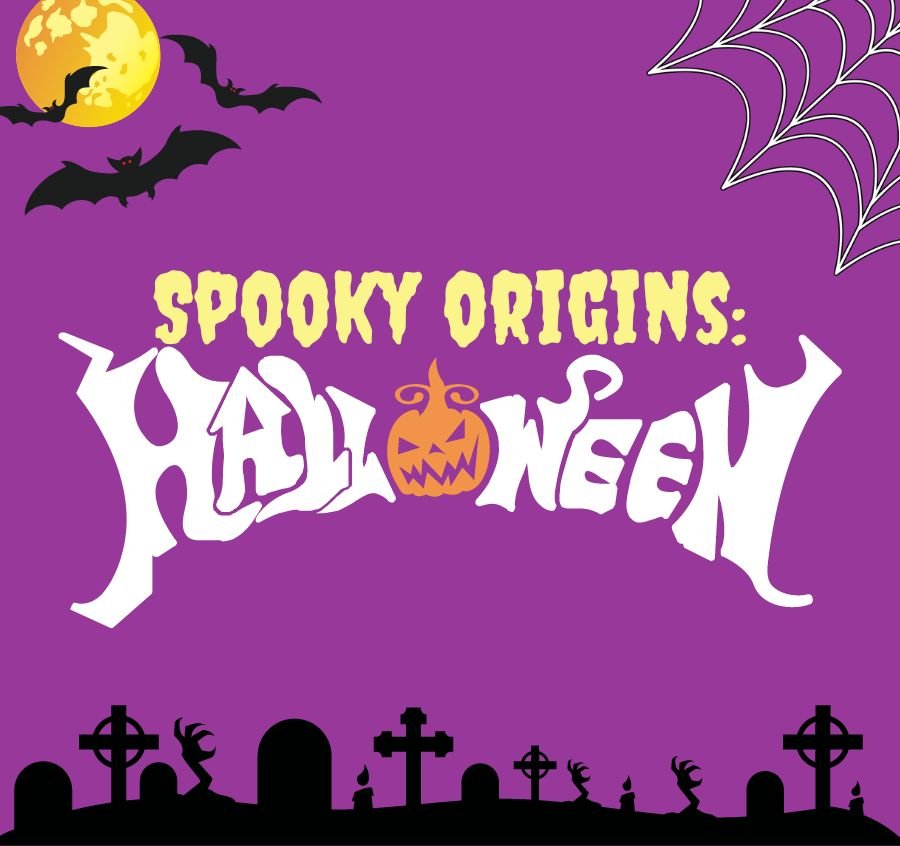Spooky Origins: Why do we celebrate Halloween?

Halloween, as we know it today, is either known as a solemn celebration to commemorate the departed or a time of supernatural stories. In addition, it is also a time for family reunions, fancy costumes, trick-or-treating, and various festivities. However, though widely celebrated globally, most people remain clueless about the origins of Halloween. And some may even wonder why we celebrate the season. But don’t worry, pal, because we got you, and we’re all in for a treat!
Let us delve into the spooky origins of the Halloween Celebration!

Halloween’s History
Interestingly, the Halloween celebration dates back thousands of years ago, sprouting from an ancient Celtic festival called ‘Samhain.‘

During the festivity, the Celts, who resided in parts of ancient Britain and Ireland, would light bonfires, offer animal sacrifices, and wear costumes to ward off spirits. Set on November 1, the celebration occurs between the end of summer and the beginning of winter. The date is also believed to be a time when the souls of the dead return to their homes.
Why the festivities?
Though the celebration intends to ward off spirits, varying accounts identify which spirit the Celts intend to repel. Some say the Celts intend to fend off trickster gods who spread fear and danger to the mortals. While other accounts say they intend to repel malevolent spirits who want to harm them. Nonetheless, the Celtic tradition continued until the arrival of the Romans who brought Christianity to the Celts.

With the arrival of Christianity, pagan traditions were tamed down or repressed, resulting in blended Celtic traditions. In around 740 C.E., Catholicism reframed Samhain into a religious observance when Pope Gregory III decreed November 1 as All Saints’ Day. Eventually, in 1000 A.D., the church ordained November 2 as All Soul’s Day to honor the dead.
Why call it Halloween?
Observed every eve of October 31, Halloween is often celebrated the night before All Saints’ Day. Hence, it was originally called All Hallows’ Eve which directly translates to All Holy’s eve. And from All Hallow’s eve came its contraction, Halloween, that we know of today.

Present-day Celebrations
Contemporarily, the Halloween celebration has spun into multiple variations. In Western culture, Americans celebrate the holidays with costume parties, trick-or-treats, and lots of scary movies. Meanwhile, here in the Philippines, we celebrate the holiday by visiting cemeteries, offering prayers, lighting candles, and having family reunions. Although we practice a more family-oriented celebration, we incorporate a few Western Halloween practices as well.

Some notable Western practices we’ve adapted include celebrating Halloween parties with eccentric costumes and doing trick-or-treats. Usually, these practices are done a few days before or a week before Halloween. This is because from Halloween until the end of November 2, most Filipinos celebrate with family members in cemeteries and memorial parks. As in the Filipino culture, family always comes first.
Conclusion
Halloween’s origins are as rich as our current practices that honor this long-withstanding tradition. From what is generally considered paganistic practices to its religious alternatives, Halloween is a well-known celebration now deeply rooted in almost everyone’s core. And up to this day, we continue to pass on this custom to the generations that follow. Hence, while we pass this on, let us also pass on its rich history with it.
Are you looking forward to celebrating the upcoming Halloween season? How do you celebrate the season? Share with us your experiences!
Hannah Charade is a broadcasting student deeply passionate about the art of storytelling. She is highly inclined towards films, TV series, and classic and contemporary literature. Apart from this, having a taste in high-stakes plots and a penchant for whodunnits, she often finds herself absorbed in mystery and detective stories. She believes that the beauty of storytelling lies in its ability to make people feel listened to and understood.






